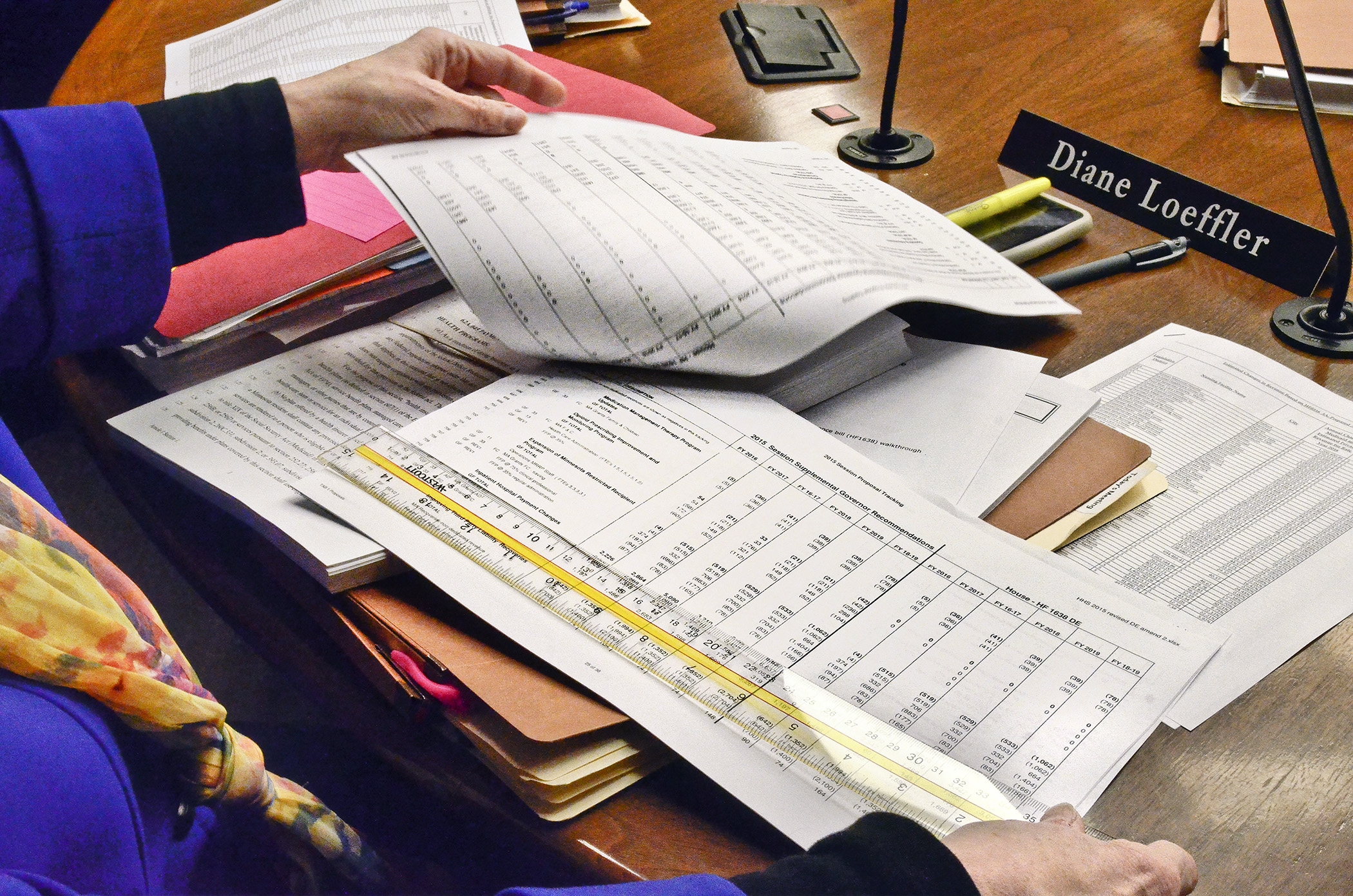Testimony expected Monday on HHS finance bill

Major reforms proposed in the omnibus health and human services finance bill begin to address low medical reimbursement rates and workforce shortages in the health care industry.
HF1638, sponsored by Rep. Matt Dean (R-Dellwood), includes measures proffered by Rep. Joe Schomacker (R-Luverne) for implementing a statewide rate of reimbursement to nursing homes. It also includes the Five Percent campaign, led by Rep. Rod Hamilton (R-Mountain Lake), which would require that 90 percent of a 5 percent rate increase be passed along to home and community-based care workers.
Proponents have said nursing homes compete for workers, who find easier work for higher pay in retail and the fast food industries. Another provision would expand a student loan debt forgiveness program in an attempt to draw more people into health careers.
"This legislation provides a major investment in nursing homes, establishes a sustainable reimbursement system, and encourages our workforce to consider a career in long-term care,” said Schomacker, who chairs the House Aging and Long-Term Care Policy Committee.
Additionally, the bill seeks to expand telemedicine.
"This bill also makes strategic investments in programs to help expand access to care and services for thousands of Minnesotans across the state,” said Rep. Tara Mack (R-Apple Valley), House Health and Human Services Reform Committee chair.
The health finance committee walked through the bill Friday without its final spending target in hand, which is expected to come Monday from the House Ways and Means Committee.
Substantial savings are factored into the bill due to cuts in administrative costs, competitive bidding and increased fraud and recovery measures. For example, an estimated $100 million in savings is expected in the next biennium from negotiated managed care contracts and nearly $30 million from a 15 percent across the board decrease in administration costs. Minority committee members questioned an estimated $300 million recovery from fraud and audit reforms directed at eligibility in public programs.
Rep. Dan Schoen (DFL-St. Paul Park) said it would be a “stretch” to think managed care organizations can cut their costs that much and Rep. Tina Liebling (DFL-Rochester) requested the supporting information to justify the proposed savings.
Boosting mental health
The legislation provides for more psychiatric beds. It funds suicide prevention and teaching techniques to help de-escalate mental health crises, plus it would test a new model in Beltrami County for treating people with mental illness in a secure facility rather than jail.
The suicide rate is increasing in Minnesota, primarily among men between the ages of 25-64. Rep. Bob Barrett (R-Lindstrom) has a grant program in the bill to train school staff, first responders and others in how to de-escalate crisis situations and prevent suicides.
MNsure, Minnesota Care
Provisions vary in the bill from tweaking MNsure’s board and operations to eliminating the program altogether, as Dean is proposing. A Mack proposal would ask the federal government to allow subsidies for purchasing health insurance outside the state exchange and would align the board of directors with other state departments.
Minnesota Care 2.0 would provide a choice of private health insurance plans to those currently enrolled in the Basic Health Plan (BHP), which doesn’t offer choices in coverage.
"While other states look to Washington D.C., Minnesotans are looking to each other for real solutions, and they are finding them," Dean said.
Beyond individual program reforms, Mack is proposing an overhaul of the public assistance application and eligibility process. Her plan would simplify the process and streamline it for applicants who may be eligible for multiple services.
As recommended by the Office of the Legislative Auditor, a proposal by Rep. Nels Pierson (R-Rochester) would direct the Department of Human Services to request proposals from vendors to conduct public assistance eligibility and verification. An OLA report noted there could be up to 17 percent error rate on program eligibility.
“We’re asking a lot within these savings. This is where the public dollars are going. We want to make sure we can control that,” Dean said.
What’s in the bill?
The following are selected bills that have been incorporated in part or whole into the omnibus health and human services finance bill:
Related Articles
Search Session Daily
Advanced Search OptionsPriority Dailies
Ways and Means Committee OKs proposed $512 million supplemental budget on party-line vote
By Mike Cook Meeting more needs or fiscal irresponsibility is one way to sum up the differences among the two parties on a supplemental spending package a year after a $72 billion state budg...
Meeting more needs or fiscal irresponsibility is one way to sum up the differences among the two parties on a supplemental spending package a year after a $72 billion state budg...
Minnesota’s projected budget surplus balloons to $3.7 billion, but fiscal pressure still looms
By Rob Hubbard Just as Minnesota has experienced a warmer winter than usual, so has the state’s budget outlook warmed over the past few months.
On Thursday, Minnesota Management and Budget...
Just as Minnesota has experienced a warmer winter than usual, so has the state’s budget outlook warmed over the past few months.
On Thursday, Minnesota Management and Budget...